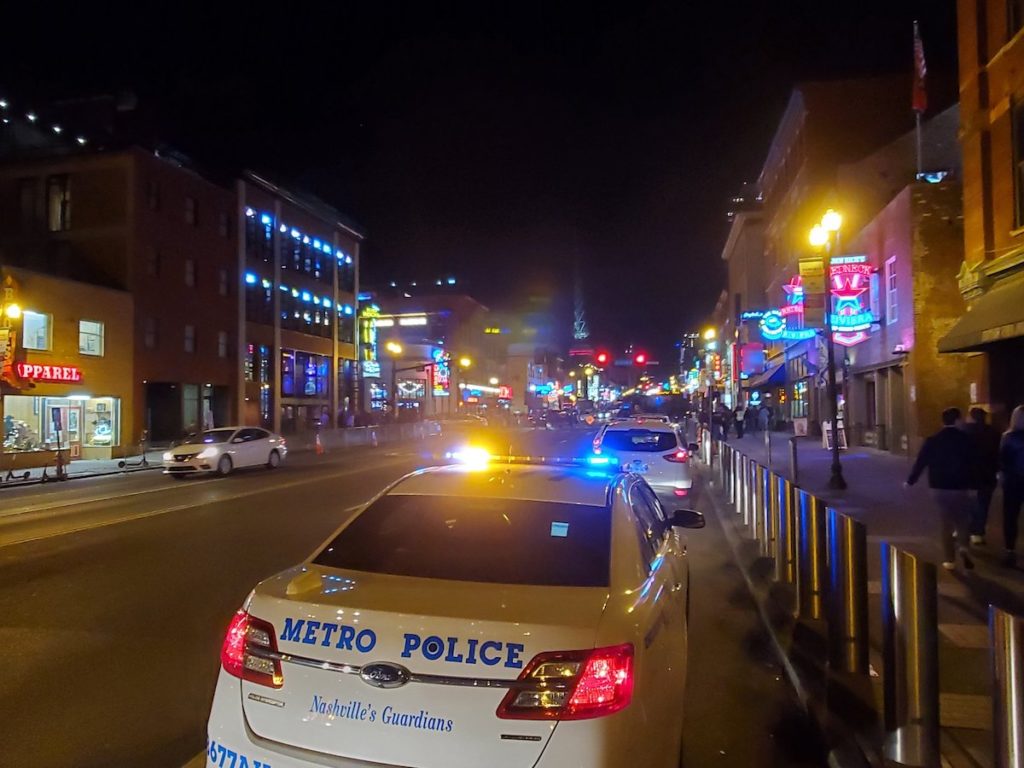
Traffic stops by police have dropped nearly 90% in the past five years.
That’s according to the latest figures from the Metro Nashville Police Department. City officials have been paying closer attention to traffic stops since two independent reports found that Black drivers were being stopped and searched at disproportionate rates — even though police rarely found evidence of a crime.
The two recent high-profile shootings of Jocques Clemmons and Daniel Hambrick also occurred after officers attempted to pull them over.
One reason for the decline is likely a change in how officers are trained.
As recently as 2016, cadets at MNPD’s training academy were strongly encouraged to search drivers’ cars after a stop. They were instructed to ask both drivers and passengers if they were carrying any illegal drugs, more than $10,000 in cash or weapons. Then, they were told to, “Ask for consensual permission to search the vehicle for those items,” according to a slideshow obtained by WPLN News.
“GET A YES ANSWER,” the slide read, in all caps.
Another slide asked officers to consider: “Who are we stopping? Grandparent or Felon.” It also advised officers to be “prepared for a shootout.”
That same year, officers stopped nearly 300,000 drivers and got permission to search about 5,000 cars. Those consensual searches turned up criminal evidence only about one in five times.
And those trends were highlighted in two separate analyses of MNPD data — first in Gideon’s Army’s 2016 Driving While Black report and later by New York University’s Policing Project. After NYU’s researchers found that MNPD’s traffic stops rarely turned up contraband, the department completely rewrote its training. The focus shifted to stopping unsafe driving, not searches.
In the very first slide, officers were encouraged to think about “why MNPD performs traffic stops” and were told to interact with community members “in a manner that maintains the citizen’s dignity, respect, and procedural justice.” They were also advised to use tactics that “enhance officer safety and decrease likelihood of violent encounters.”
The training notes that MNPD uses traffic stops as one way to reduce crime because “Nashville in particular depends on the automobile for transport” and notes that the department decides where to enforce based on data. But it also urges officers to think about the legal justifications they have for making a stop before pulling someone over.
Since the new training was introduced in 2018, traffic stops have dropped substantially.
Officers pulled over 204,400 that year. By 2019, the number had declined to 55,667. And the latest data show that police conducted just about 31,520 traffic stops last year.
But, despite the large decline, Black drivers were still stopped and searched more often than their white counterparts each year.
Earlier this month, a Black woman was killed in a shootout with a police officer after he searched her bag and found marijuana and a small bag containing a white powder. The officer survived. MNPD, the Tennessee Bureau of Investigation and Metro Nashville Community Oversight are all investigating the incident, to see if any policies or law were violated.
Samantha Max is a Report for America corps member.

